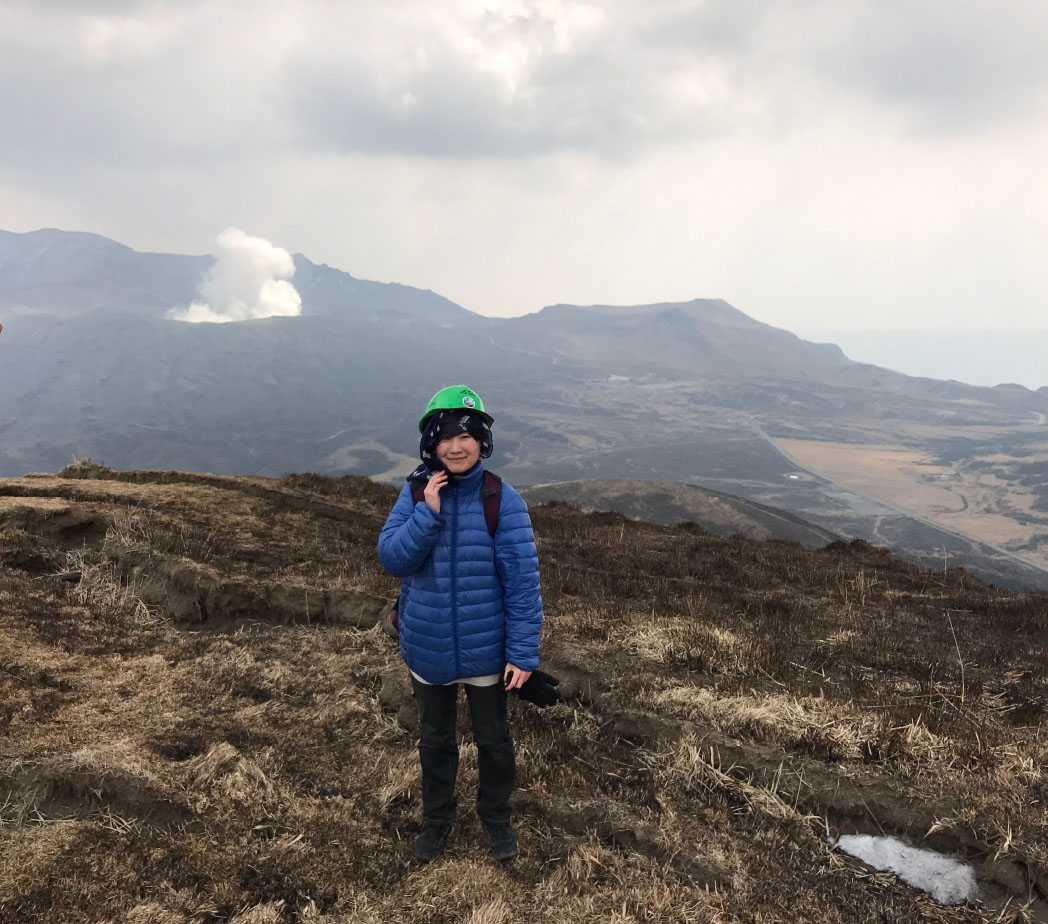|
Link |
|
|
Makita Hiroko
|
Research Interests 【 display / non-display 】
-
Salt lake
-
Astrobiology
-
Organic production
-
extremophiles
-
Water treatment
Research Areas 【 display / non-display 】
-
Frontier Technology (Aerospace Engineering, Marine and Maritime Engineering) / Marine engineering
-
Life Science / Applied microbiology
-
Natural Science / Biogeosciences
Papers 【 display / non-display 】
-
Stable Isotope Systematics of Mg, Sr, and Li in Hydrothermal Fluids and Hypersaline Lake Brines in the East African Continental Rift (Djibouti)
Toshihiro Yoshimura, Daisuke Araoka, Toshiro Yamanaka, Nima Moussa, Tomoyo Okumura, Hiroko Makita, Vesselin M. Dekov , 2025.09
Geofluids
-
Custom-made medium approach for effective enrichment and isolation of chemolithotrophic iron-oxidizing bacteria.
Tomoki Uchijima, Shingo Kato, Kazuya Tanimoto, Fumito Shiraishi, Natsuko Hamamura, Kohei Tokunaga, Hiroko Makita, Momoko Kondo, Moriya Ohkuma, Satoshi Mitsunobu , 2025.05
FEMS microbiology ecology
-
Suitable cultivating conditions of marine Fe-oxidizing bacteria for pyrite depression in seawater flotation system
Yuma Shimizu, Hiroko Makita, Keishi Oyama, Hibiki Miura, Chiharu Tokoro, Shigeshi Fuchida , 2024.11
The proceedings of the 63rd Annual Conference of Metallurgists
-
Mechanism of pyrite depression by marine Fe(II)-oxidizing bacteria in seawater flotation
Shigeshi Fuchida, Keishi Oyama, Jifeng Xue, Chiharu Tokoro, Yuma Shimizu, Hibiki Miura, Kokoro Kitagawa, Hiroko Makita , 2024.11
Minerals Engineering
-
Large sulfur isotope fractionation during abiotic consumption of hydrogen sulfide after cessation of bacterial growth in batch culture experiments of sulfate reducing bacteria
Fumihiro Matsu’ura, Hiroko Makita, Ken Takai, Mayuko Nakagawa Yuichiro Ueno , 2023.12
Earth and Planetary Science Letters
Grant-in-Aid for Scientific Research 【 display / non-display 】
-
Project Period (FY): 2022/04 - 2027/03 Investigator(s): 牧田 寛子
Grant-in-Aid for Scientific Research(B) Principal Investigator 23K22965
-
Possibility of biosphere driven by iron
Project Period (FY): 2020/04 - 2022/03 Investigator(s): 牧田 寛子
Grant-in-Aid for Scientific Research on Innovative Areas (Publicly Research) Principal Investigator 20H04610
-
The challenge of using microbial functions to improve the durability of concrete materials
Project Period (FY): 2018/04 - 2021/03 Investigator(s): Makita Hiroko
Grant-in-Aid for Scientific Research(C) Principal Investigator 18K04595
The aim of this study was to investigate the effectiveness of microbial functions in improving the durability of concrete materials in marine environments by means of exposure and immersion experiments in lab. and actual marine environments using test specimens to which organic matter was added to stimulate in-situ microbial activity. During the study period, the specimens were placed in a cold seawater tank and in marine environment to determine the physico-chemical changes in the specimens and to identify the microbial community that flourished in each specimen.As a result, this study was able to identify the microbial species that prefer to grow in the specimens, to show that the addition of organic matter to the specimens promotes the growth of specific microorganisms, and that the function of the microorganisms that prefer the specimens on the seafloor may be effective in controlling degradation.
-
Project Period (FY): 2014/04 - 2017/03 Investigator(s): MAKITA Hiroko
Grant-in-Aid for Young Scientists(B) Principal Investigator 26820389
This research aims to investigate the possibility of substance production utilizing carbon dioxide in the seawater independent of photosynthesis, and to construct a circulation system to remove CO2 from the environment using microbial functions. In order to achieve the purpose, it is necessary to establish a new mass-culturing method of chemotrophic bacteria and to evaluate the usefulness of extracellular organic materials they produce.
In this study, we succeeded in developing a mass-culturing method of marine iron oxidizing bacteria using CO2 in the seawater as the carbon source for their growth. Moreover, we succeeded in isolating a number of new iron-oxidizing bacteria using this method, as well as in clarifying the composition and structure of extracellular organic materials they produce. Through the present research, we obtained crucial knowledge required for the development of a system to produce organic materials from CO2 in the seawater by microbial activity. -
Microbial corrosion in the deep sea environment
Project Period (FY): 2010 - 2012 Investigator(s): MAKITA Hiroko
Grant-in-Aid for Young Scientists(B) Principal Investigator 22760646
The main objective of this study is to reveal the molecular mechanisms of microbiologically induced corrosion (MIC) in the deep-sea environments. During the investigation process, we have succeeded in isolation of a high H2S-producing novel bacterium, chemical analyses and biological studies of the natural corrosion areas (iron mats), as well as establishing a new analytical method for directly determining the relationships between mineral and microorganisms.
Lesson Subject 【 display / non-display 】
-
Lesson Subject(Undergraduate)
Earth ScienceⅡ
-
Earth ScienceⅡ
-
Lesson Subject(Graduate School)
Geomicrobial Ecology
-
Special Seminar in Ocean Sciences
-
Research in Ocean Sciences







